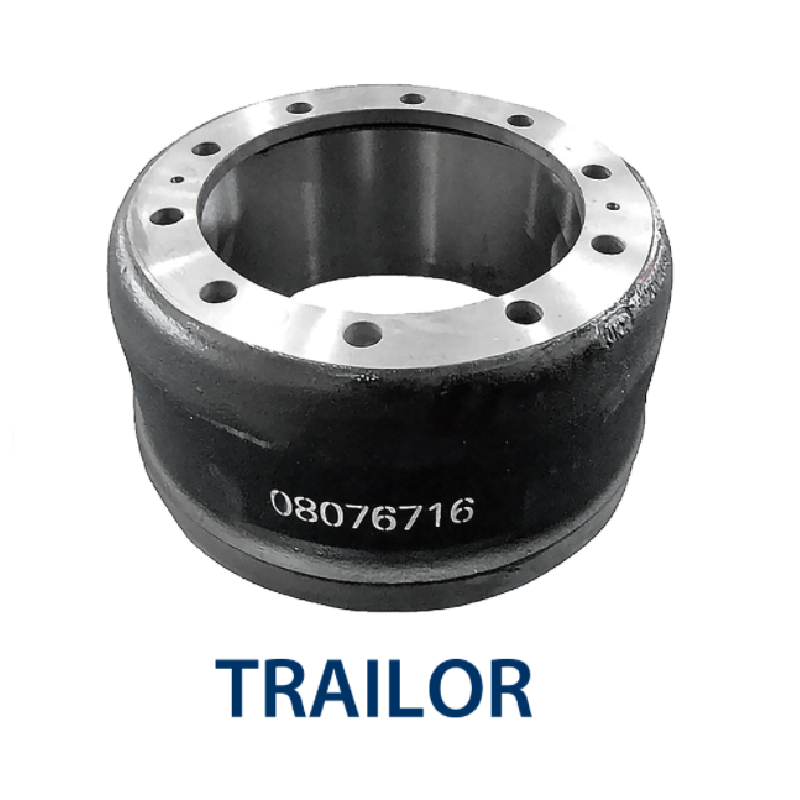7 月 . 27, 2024 03:17 Back to list
Understanding the Importance of Brake Drums and Discs for Vehicle Safety and Performance
Brake Drums or Discs Understanding Your Vehicle's Stopping Power
When it comes to the braking system of a vehicle, two primary types of components come into play brake drums and brake discs (or rotors). Understanding the differences between these two systems and their respective advantages can significantly affect vehicle performance, safety, and maintenance.
Brake Drums The Traditional Choice
Brake drums have been a traditional component in many vehicles, particularly in older models and certain budget-friendly cars. They function using a simple mechanism when the brake pedal is pressed, brake shoes inside the drum are forced against the inner surface, creating friction and slowing the vehicle down. This mechanism is known as drum braking.
One of the main advantages of brake drums is their cost-effectiveness. They are generally cheaper to manufacture and replace than disc brakes. Additionally, drum brakes are more effective in providing a greater friction surface area, which can lead to better braking performance in certain scenarios, such as low-speed situations.
However, they do come with some drawbacks. Brake drums are more prone to heat buildup since the enclosed design does not dissipate heat as efficiently as brake discs. This can lead to brake fade, where the braking performance diminishes as the brakes heat up, making them less reliable in high-speed or heavy-load situations. Furthermore, drum brake systems may require more maintenance and adjustment over time, which can lead to increased long-term costs.
Brake Discs The Modern Standard
brake drums or discs must

In contrast to brake drums, brake discs are now considered the modern standard in vehicle braking systems. Discs operate via calipers that squeeze brake pads against the disc, resulting in effective stopping power. This design allows for better heat dissipation, reducing the risk of brake fade and maintaining consistent performance under a variety of driving conditions.
One significant advantage of disc brakes is their effectiveness in wet conditions. The exposed nature of the brake discs helps them dry quickly after exposure to rain, which leads to more reliable braking performance. Notably, performance vehicles predominantly use disc brakes due to their superior stopping power and responsiveness, particularly at high speeds.
While disc brakes offer enhanced performance, they may come with a higher initial cost compared to drum brakes. However, longevity often compensates; disc brake systems typically require less frequent maintenance and adjustments, making them a more economical choice over the lifespan of the vehicle.
Choosing Between Brake Systems
When deciding between brake drums and discs, it's essential to consider the type of driving you do, your budget, and the vehicle's intended use. For everyday commuting and low-cost vehicles, drum brakes may suffice. However, for those seeking performance, safety, and enhanced driving experiences—especially in demanding conditions—disc brakes are often the better choice.
Most modern vehicles now come equipped with disc brakes on the front, with many transitioning to discs on the rear as well for improved performance and safety. It's crucial for vehicle owners to ensure their braking systems are well-maintained, regardless of the type, as effective brakes are fundamental to vehicle safety.
In conclusion, both brake drums and discs have their pros and cons. While traditional drums might appeal to budget-conscious consumers, brake discs offer superior performance and reliability, particularly increasingly favored in modern automotive technology. Understanding these differences empowers vehicle owners to make informed decisions about their braking systems, ultimately enhancing their driving experience and safety on the road.
-
Brake Drum for Kamaz Trucks Durable OEM Replacement & High Performance
NewsMay.30,2025
-
Brake Drum Man High-Quality Drum Brake & Shoe Solutions
NewsMay.30,2025
-
High-Performance Brake Drum for Kamaz Trucks Durable Drum Brake Components
NewsMay.29,2025
-
Brake Drum Man High-Quality Drum Brake Drums & Brake Shoes
NewsMay.29,2025
-
Brake Drum MAZ High-Performance & Durable Replacement Parts
NewsMay.29,2025
-
heavy truck brake drums
NewsMar.07,2025
